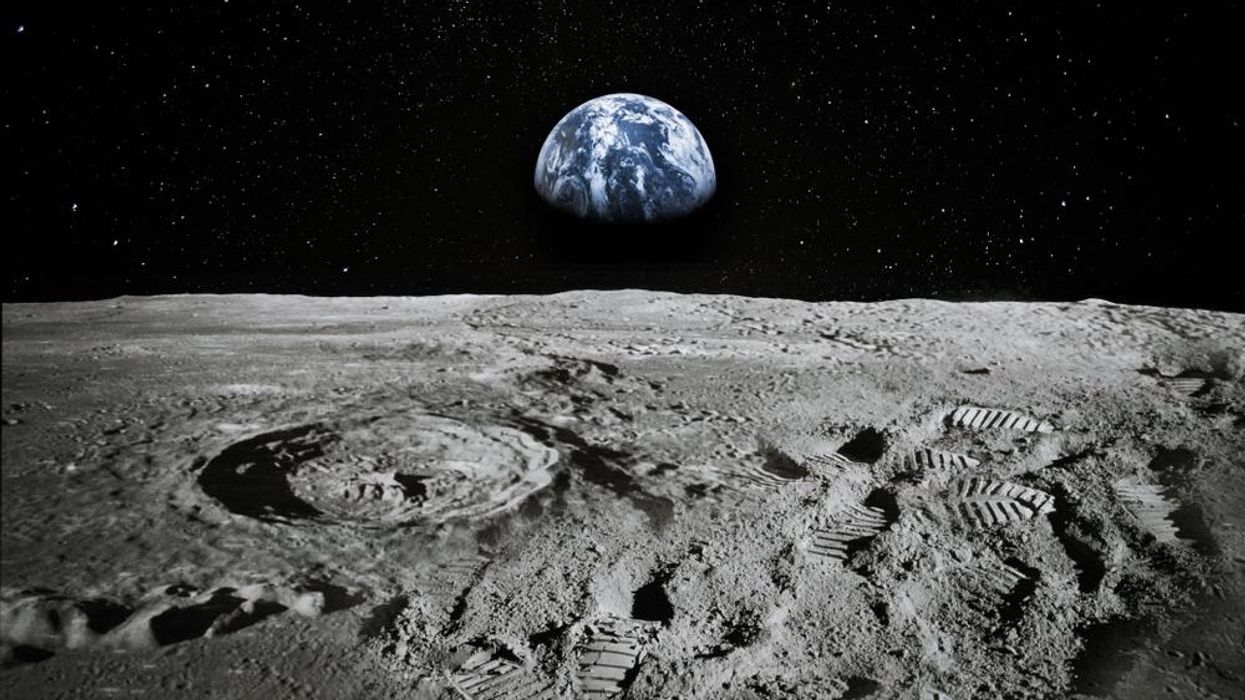New research suggests that a layer of lunar dust between the moon and Earth could slow the effects of climate change, but scientists are concerned of the risks that come with the novel field of solar geoengineering.
A study published in the PLoS science journal detailed that moon dust could act as an umbrella of sorts, blocking the planet from the Sun's radiation in a similar fashion to the ozone layer.
While previous strategies have suggested creating a layer of dust in space, the team from the University of Utah proposed cutting the cost of the expensive procedure by using the moon as both a source of dust, and a launch point.
The Biden Administration is currently reviewing a research project exploring the “scientific assessment of solar and other rapid climate interventions." The European Union is also actively considering these injections into deep space.
Though scientists around the globe have raised concerns, with 380 collectively calling upon world governments not to pursue solar geoengineering when confronting climate change.
The group stated three main objections, the first being that the impacts of solar geoengineering and interfering with global climate are not yet known. They could potentially destabilize weather patterns, altering agriculture and water cycles across the planet.
World governments are also not yet able to regulate solar geoengineering technologies, which would require deployment into space. Any individual or private company could theoretically launch a potentially damaging project without consequences.
Though most importantly, the scientists say, pursuing solar geoengineering diverts attention and resources away from combatting the cause of climate change — greenhouse gas emissions. They argue that decarbonization efforts are far cheaper, and would unequivocally benefit the planet.
Dr. Michael Mann, a climate scientist from the University of Pennsylvania, told The Hillthat solar geoengineering is a risky solution to a problem that could easily be solved without it.
“While it is certainly true that reducing sunlight can cause cooling, it acts on a very different part of the climate system than carbon dioxide," he explained. "And efforts to offset carbon dioxide-caused warming with sunlight reduction would yield a very different climate, perhaps one unlike any seen before in Earth’s history, with massive shifts in atmospheric circulation and rainfall patterns and possible worsening of drought."
Mann added: “Some proponents insist we can always stop if we don’t like the result. Well yes, we can stop. Just like if you’re being kept alive by a ventilator with no hope of a cure, you can turn it off.”
- How Does Climate Change Affect Gun Violence? ›
- Polar Bear Attacks May Be Linked to Climate Change, Experts Say ›
- How Climate Change Leaves Women at Risk of Domestic Violence ›
- ‘India is on the Moon’: Country Becomes First to Land on Lunar South Pole ›



















































